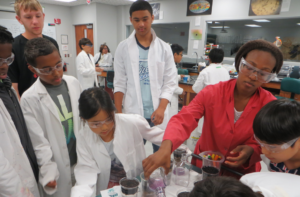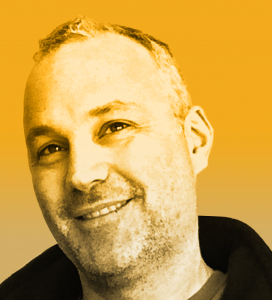
How many times have you encountered a technical problem in your work that you needed to solve? Maybe it was an issue of workflow efficiency—too many samples, but too little time for hands-on work. Or maybe there wasn’t a technology available for what you needed to accomplish, and you didn’t have time to develop something yourself. Or still, maybe you were starting into a new research area and didn’t yet have the expertise to solve the problem. Wouldn’t it be nice if you had some support to figure out a solution for these challenges? We have scientists at your service! You may already know about our top-notch team of Technical Services Scientists. They can assist you via phone, email, or chat to walk you through any technical issue, regardless of whether or not you’re using Promega products (not too many companies can say that!).
We go beyond that level of assistance with the expertise of the Scientific Applications team.
Continue reading “Promega Scientific Applications: Expertise to Optimize Your Workflow”
 This motivational quote has echoed throughout my life from childhood. It has inspired me to be fearless in dreaming, to be ambitious and to reach for those goals without fearing failure. So, naturally at the ripe age of 10, my goal was to become a scientist and discover a cure to both AIDS and cancer with a secondary plan of becoming this nation’s first female President. However, as I grew older, I realized my genuine interest and excitement for science and that I enjoyed not only learning about various scientific concepts but also sharing this information with others. Therefore, I completed a Bachelor’s of Science degree with a major in Molecular Biology and minor in Chemistry and decided to continue my studies as a graduate student at UW-Madison in the Cancer Biology graduate program. My goal was to graduate and aid in disseminating scientific knowledge.
This motivational quote has echoed throughout my life from childhood. It has inspired me to be fearless in dreaming, to be ambitious and to reach for those goals without fearing failure. So, naturally at the ripe age of 10, my goal was to become a scientist and discover a cure to both AIDS and cancer with a secondary plan of becoming this nation’s first female President. However, as I grew older, I realized my genuine interest and excitement for science and that I enjoyed not only learning about various scientific concepts but also sharing this information with others. Therefore, I completed a Bachelor’s of Science degree with a major in Molecular Biology and minor in Chemistry and decided to continue my studies as a graduate student at UW-Madison in the Cancer Biology graduate program. My goal was to graduate and aid in disseminating scientific knowledge. Recruiters aren’t pessimists, but throughout the years we have become more cautious and maybe a little suspicious. Many of us interviewed enough candidates that we have come to approach each new person with a “trust but verify” mentality. I’m very trusting in my personal life, but at work, my job is to be a detective. I follow clues to dig up the good, the bad, and the ugly.
Recruiters aren’t pessimists, but throughout the years we have become more cautious and maybe a little suspicious. Many of us interviewed enough candidates that we have come to approach each new person with a “trust but verify” mentality. I’m very trusting in my personal life, but at work, my job is to be a detective. I follow clues to dig up the good, the bad, and the ugly. When Dave Romanin came to work for Promega he was fresh out of school with a degree in bacteriology. His plan was to work for a year in manufacturing and then go back to graduate school. But in the end, he didn’t go. There was no incentive, he explains, for him to spend five years in graduate school making little to no money. He didn’t want to write grants or run his own lab, and he enjoyed what he was doing.
When Dave Romanin came to work for Promega he was fresh out of school with a degree in bacteriology. His plan was to work for a year in manufacturing and then go back to graduate school. But in the end, he didn’t go. There was no incentive, he explains, for him to spend five years in graduate school making little to no money. He didn’t want to write grants or run his own lab, and he enjoyed what he was doing.



